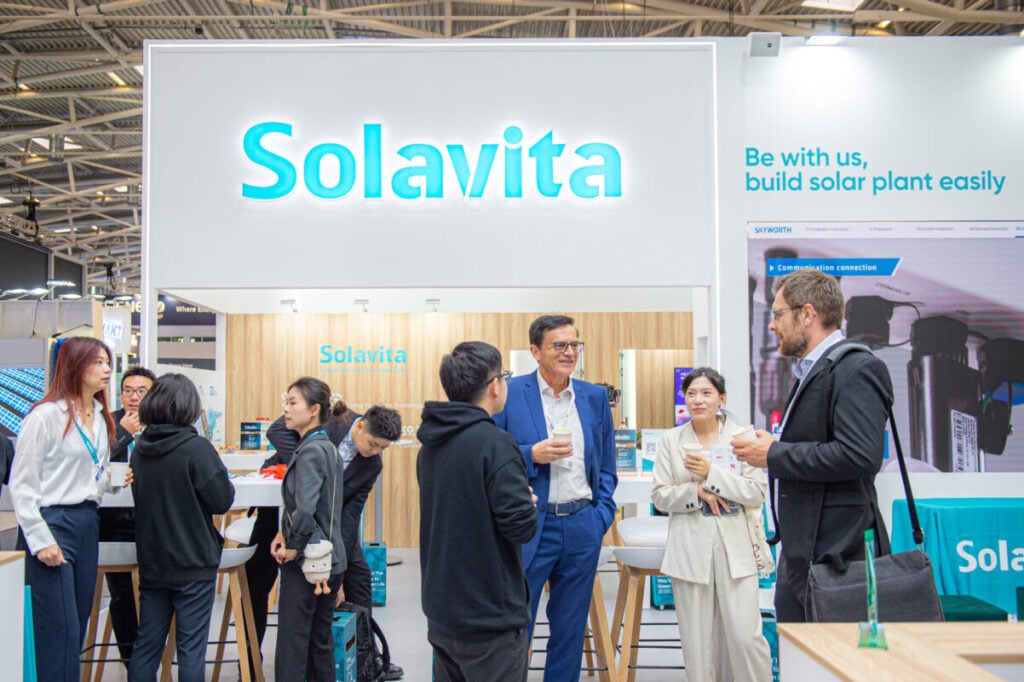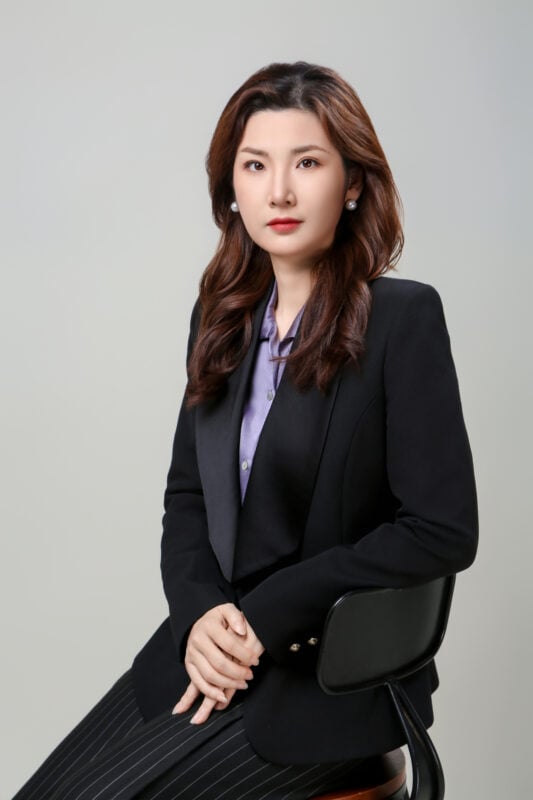
At this year’s Intersolar Europe event, held in Munich, Germany, Solavita showcased its range of products and services, and launched a new hybrid inverter, designed for use in the commercial and industrial (C&I) sectors.
While the company’s recent performance has been strong – Solavita now has products in operation in more than 40 countries worldwide – the event saw questions asked about the strength of the European energy system, particularly with reference to grid stability and emerging sectors, such as distributed solar and agrivoltaics (agriPV).
Try Premium for just $1
- Full premium access for the first month at only $1
- Converts to an annual rate after 30 days unless cancelled
- Cancel anytime during the trial period
Premium Benefits
- Expert industry analysis and interviews
- Digital access to PV Tech Power journal
- Exclusive event discounts
Or get the full Premium subscription right away
Or continue reading this article for free
Here, PV Tech speaks to Solavita CEO Wanfei Qu about the products the company has brought to the European market; its involvement in all aspects of the solar industry, from product design to engineering, procurement and construction (EPC); and how its work fits with Skyworth Group’s broader push towards carbon neutrality.
PV Tech: What products are you keen to highlight at this year’s Intersolar Europe event?
Wanfei Qu: We offer three types of photovoltaic modules: Anti-dust, Colorful and Pioneer. These modules combine beauty and high performance, with power outputs ranging from 340W to 645W. We can also create custom solutions to fit specific needs.
For inverters, we offer single-phase and three-phase on grid inverters, from 1kW to 320kW, suitable for projects of all sizes. We also have high-voltage hybrid inverters, stacked batteries and all in one energy storage systems, plus low-voltage options for price-sensitive areas.
Additionally, in Germany, we provide full EPC services for PV power stations, including planning, design, equipment procurement, construction, integration, commissioning, technical support and after-sales service—delivering a comprehensive, one-stop solution for project owners.
For Intersolar Europe this year, we launched a new product, which is 30-50kW hybrid inverter, designed for C&I applications. Also, we showcase the residential energy storage system and balcony PV system, which is quite popular in Germany.
How would you describe the European solar sector at present? How does it compare to other markets?
We view the German and European photovoltaic markets as key growth areas, driven by strong demand for clean energy solutions. While residential solar adoption is growing slowly, commercial, industrial and balcony PV systems are seeing a positive growth trend.
Of course there are great opportunities for new solar and storage capacity. In Germany, balcony PV systems with portable power stations are booming and a lot of people who rent an apartment can install this small solar-plus-storage system, which is great!
For large projects with innovation in areas like agriPV and large-scale solar parks, we’re able to support these developments with tailored products and localised services. Our offices in Eschborn and Milan strengthen our presence, enabling us to better serve European partners and contribute to the region’s push towards carbon neutrality.

At Solavita, we have tailored our products to meet the challenges of the European energy industry, particularly the issue of limited grid capacity. Our advanced inverters and energy storage systems are designed to optimise energy usage and reduce reliance on the grid.
Last month, the grid was offline in Spain and Portugal. In this case, choosing Solavita solar-plus-storage systems can keep homes and businesses powered by seamlessly switching to stored energy, ensuring a continuous supply of electricity even during grid outages. Our solutions provide energy independence, increase resilience and support users in managing their energy needs efficiently, especially during such unforeseen disruptions.
With smart energy management features, modular designs and integrated solar and storage solutions, we help users maximise self-consumption, store excess energy and improve overall energy efficiency. These innovations enable us to support Europe’s transition to a more sustainable and resilient energy system.
How has the group’s priorities changed in recent years, and what are its key European markets?
Skyworth Group, our parent company, has over 37 years of experience in electronics manufacturing and sees the shift to clean energy as a major strategic priority. We’re using Skyworth Group strengths in smart tech, manufacturing and supply chains to drive innovation in the new energy space.
Skyworth is moving ‘from smart appliances to carbon peaking and carbon neutrality’. Through our zero-carbon smart home solutions, we’re helping turn everyday homes into truly green ones—supporting a more sustainable future and doing our part as a responsible company.
We mainly focus on markets like Germany, Italy and Thailand this year and we see huge potentials in these countries, especially in C&I applications. Currently our installation capacity is 20GW and 600,000 power stations has been built around the world, and we ranked as TOP 2 Distributed PV brand in China last year.
We did a pretty good job in last few years in domestic PV markets but less business globally; therefore, we started to explore overseas PV market opportunities since 2022. Now our products have been installed in more than 40 countries and regions in the world.






